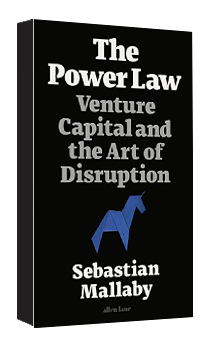India Startup Ecosystem’s Centum and the Power of Belief
ByGV Ravishankar
PublishedMay 17, 2022
A newsletter by GV Ravishankar, MD, Sequoia Capital India, that explores a diverse range of ideas on scaling companies, personal growth, and leading teams.
On a windy afternoon in May 1954, at Oxford’s Iffley Road track, Roger Bannister, a 25-year-old junior doctor, set out to do what was till then considered impossible. He was going to attempt to run a mile in under four minutes – a feat that had not been achieved by any man. As 3,000 spectators looked on, and hundreds of thousands more tuned in via a live BBC Radio broadcast, Roger made history by completing four laps in three minutes and 59.4 seconds. It was a new milestone in middle-distance running and a record that one would have thought would remain hard to beat. The record stood for a grand total of 46 days before it was broken by Australian runner John Landy. Landy wasn’t the only one after Bannister who managed to run a mile in under four minutes. As of April 2021, 1663 different people have managed to break the four-minute barrier. So what allows these folks to routinely break a record that humanity hadn’t broken for thousands of years? Beyond better training, better science, and certainly better running shoes – the key difference is people running today know that such a goal is achievable and there are examples of people having done that! The power of belief becomes the key ingredient in such an achievement!
I was a reasonably good student growing up and routinely topped my class. Due to a set of circumstances, I ended up in a smallish school in Chennai, where I grew up. For our CBSE 10th board exams, we found ourselves pooled with the best school in the city (PSBB) into a common exam center. While the kids from our school each made their own way to the exam center, the PSBB kids were dropped and picked up by their school bus, with their teachers accompanying them. On the day of the science exam, I walked out feeling pretty good about how well I had performed – I was sure I would score mid to high nineties. But just as I was walking by the PSBB bus, a teacher from their school rushed up to the kid next to me and asked him, “How was it? You will get a centum right?”. Something right there set me off into a new insight in life.
Centum, the Latin word for 100, had found its way into the Tamil dictionary in schools and Chennai homes. In those days, as a Tambrahm, if you didn’t score a centum in Math you almost feared that the community would disown you! But centum in science? I was surprised that the teacher was even asking that question. I thought to myself, “No one gets a centum in science, it’s only possible in math” – because neither I, nor anyone else at my school, had ever earned a centum in science. Then it dawned on me that I never had the goal to score full marks because no one told me it was possible. I didn’t believe it could be done – you can only hit the goals that you believe are possible! And someone either needs to show the way or make you believe it’s achievable.
“…you can only hit the goals that you believe are possible! And someone either needs to show the way or make you believe it’s achievable.”

In the Indian startup ecosystem, Flipkart was the first example of two tech guys starting an online bookstore and building it into the country’s first decacorn. They showed the rest of the ecosystem that large valuable companies can be built in India. Now there are several more that have not only started but also gone public to demonstrate that enduring value creation is possible. Zoho and Freshworks now serve as examples for founders who want to build large and valuable cross border SaaS businesses. In the Gulf Cooperation Council (GCC), Careem, which was sold to Uber, was the Roger Bannister of the ecosystem. In South East Asia, GoTo and Grab were the ecosystem champions that sparked tremendous entrepreneurship in the region. Everybody needs a hero in their lives, a role-model that inspires them to push some limits and provides them the courage to pursue their dreams. We need a few who stand at the far end and say, “If I can do it, so can you!”
This is why the recent announcement that India now has 100 unicorn companies is so significant. It’s not about valuation. It’s the fact that in the eyes of their backers, these 100 companies have shown sufficient progress and have the potential to become the enduring companies of the future. Celebrating these unicorns is not a declaration of victory, but an opportunity to get 10,000 other startups to “believe” that it is possible to build something valuable, and an opportunity to inspire thousands of new founders to innovate and start up. Of course, we understand there is still a long way to go, and I will be amongst the first to acknowledge that building an enduring business is a long journey and the unicorn status is no reflection of the ability of the company to endure. We do hope more unicorns turn into ‘dura-corns’!The current mood in the market has shifted sharply southward thanks to the significant corrections in the US tech markets. The Indian funding environment has slowed down and the Twitter feed is full of news of doom and gloom, layoffs and gyan on how to conserve and survive. In that context, one tends to dismiss some of the achievements of the ecosystem over the last 15 years. While we don’t want to lose sight of how far we still need to go, I do think it’s important to acknowledge how far we have come – a bow to the founders who made our ecosystem so vibrant! Unicorns are mythical creatures and unicorn status is not an absolute outcome that’s worth chasing; but every myth and legend exists to educate and inspire. The story of how India crossed the 100 unicorn mark may be the right story, at the right time, for all those budding founders who need a shot of inspiration to begin their journey.
“Celebrating these unicorns is not a declaration of victory, but an opportunity to get 10,000 other startups to “believe” that it is possible to build something valuable, and an opportunity to inspire thousands of new founders to innovate and start up.”
Recommended Reads
Here are three articles I read over the last few weeks that I found interesting:
In Why do we die without sleep?, a recent episode of Quanta Magazine’s podcast, The Joy of Why, host Steven Strogatz speaks with Dragana Rogulja, an assistant professor of neurobiology at Harvard Medical School and Alex Keene, a neurogeneticist at Texas A&M University, about the importance of sleep in the lives of the fruit flies and fish they’re researching, and in our lives, too. This gave me even more reason to continue to justify my need for seven to eight hours of sleep every night!
Considering the number of diseases that mosquitoes seem to be responsible for spreading, including malaria, chikungunya and dengue, this research output by a biotech firm, which has released five million genetically modified mosquitoes engineered to wipe out their own population, seems promising. If things work at scale, this could result in a significant reduction in the spread of some deadly diseases. That said, I’m personally left wondering how eradicating an entire insect species will impact the wider natural ecosystem.
This article, from the Museum of Art and Photography website, talks about how a plague outbreak in Bangalore in the early 20th century resulted in the creation of a new township called Fraser Town, which happens to be my old neighborhood. If you are from the city of Bangalore, there is some interesting history and trivia in this piece!
If you have time for a longer read, here are two books I’d like to recommend:

The Power Law: Venture Capital and the Art of Disruption, by Sebastian Mallaby
This is a well researched book on the history of venture capital in the US and also covers China and a bit of India! This book is packed with anecdotes from many of the leading venture firms in the valley, including my firm, Sequoia Capital, which has been covered in a fair bit of detail. I enjoyed reading this and learning more about the industry and its evolution!

AMORALMAN: A True Story and Other Lies, by Derek DelGaudio
This is a bit of an offbeat but enjoyable non-fiction book which brings to light the internal conflicts we face and lies we tell ourselves. The central character, who was in the business of conning others, believed he worked with a certain ethic and only later in life comes to understand the overall immorality of his own acts. What is fascinating is how people can live within an illusion despite the obvious immorality of the business they are in.
Do write in at gv@peakxv.com if any of my interests intersect with yours! Click here to read more articles on Sequoia’s blog. I’m also on LinkedIn and Twitter.